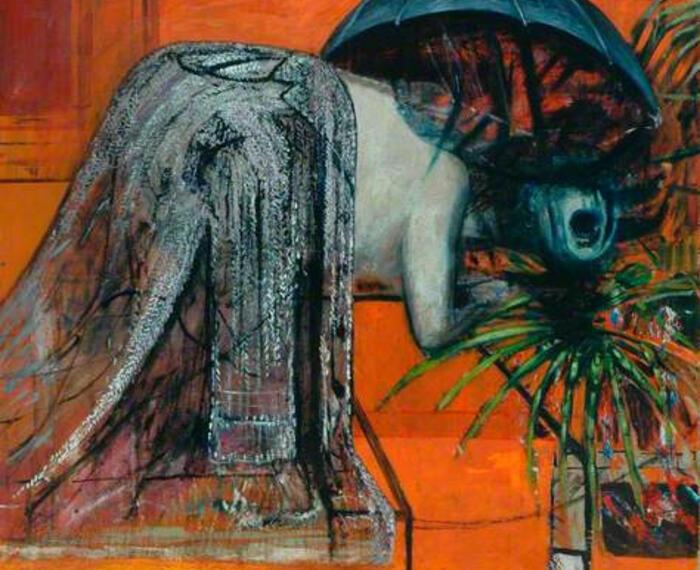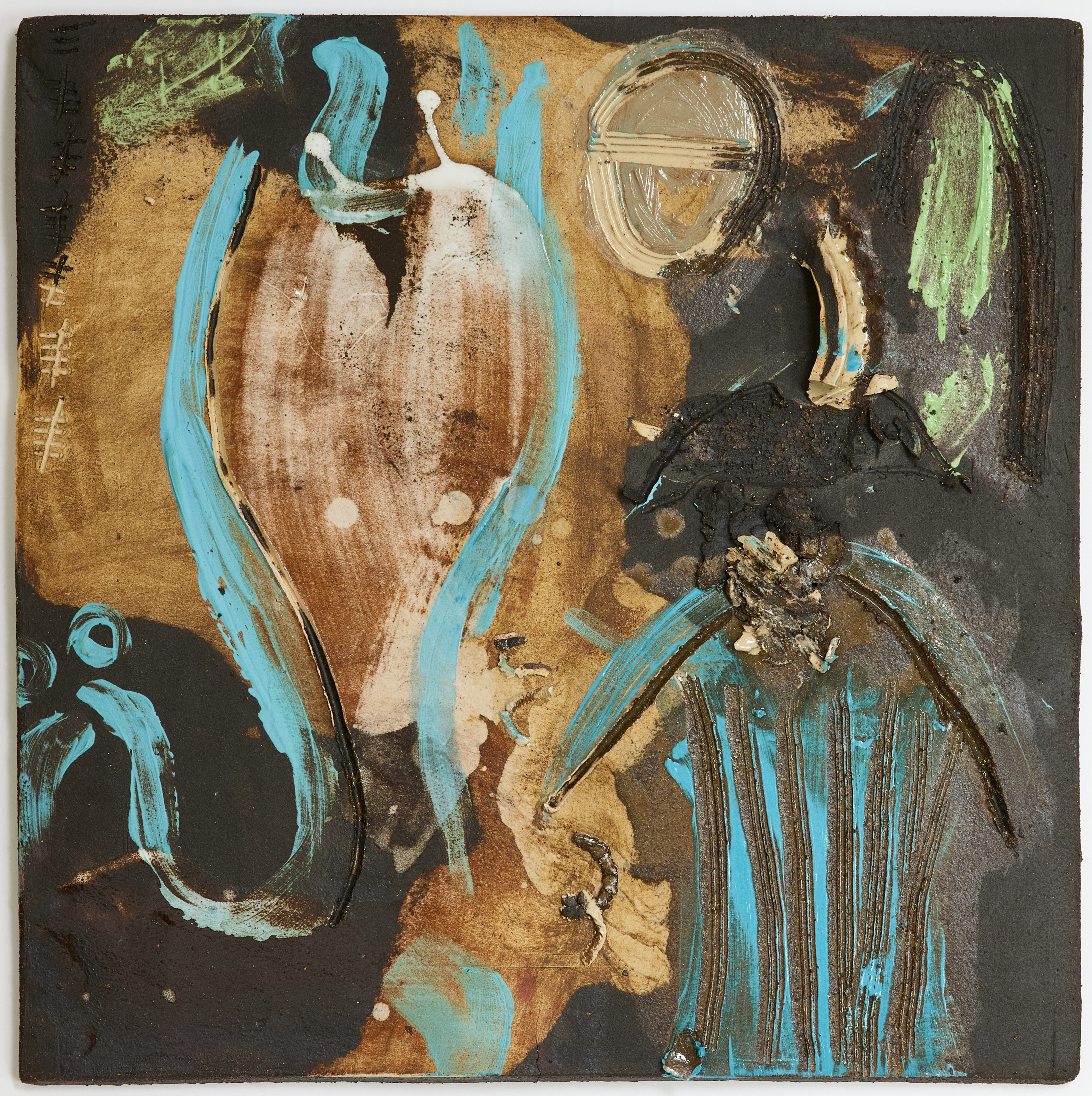Phoebe Collings-James’s practice comes from a desire to work with clay as a live, sculptural material, and from previous paintings she produced on canvas. These two ways of making converged into her current process, which allows for the incorporation of resonant symbols and textures. She describes her work as ‘emotional detritus’, as it speaks of the feelings and experiences of living, surviving and desiring within hostile environments; the artist hopes that viewers will have a sensory reaction to her art.
Jugular is a significant work as it marks the moment the artist first incorporated colour into their clay paintings. Previously, their scroll-like tablets had always been grids of monochromatic white slip and glaze on black clay. This work stands alone as a single panel, marked with dynamic brush strokes, which describes the vulnerability of ‘going for the jugular’ with an onomatopoeic thrust. The work also contains sgraffito markings and slip painting – techniques that have become integral to Collings-James’s ceramic language.
Southampton City Art Gallery holds one of the finest collections of art in the south of England and holds ‘Designated’ status, awarded by Arts Council England. Currently comprising over 5,000 works and spanning eight centuries, the collection is an outstanding educational resource that can trace the history of European art from the Renaissance to the present. The core, however, is British twentieth-century and contemporary art. Jugular is an important addition to the small but significant collection of ceramic works held by the gallery, which is built on a bequest of British studio pottery by Eric Milner-White in 1939 that represents some of the best studio potters working in England between the two World Wars, including Bernard Leach and Shoji Hamada.


